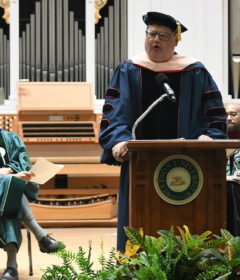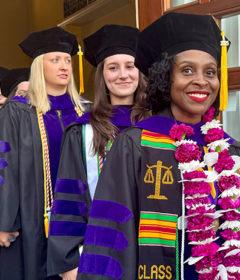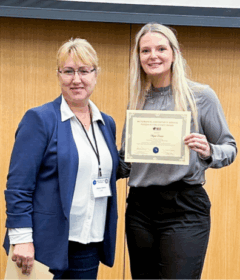Success in the Face of Disabilities Begins with Advocacy
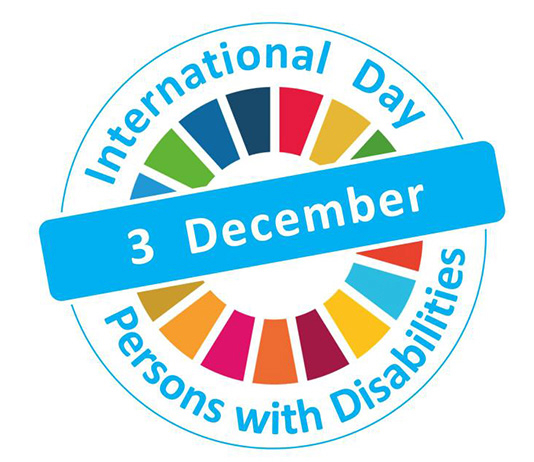
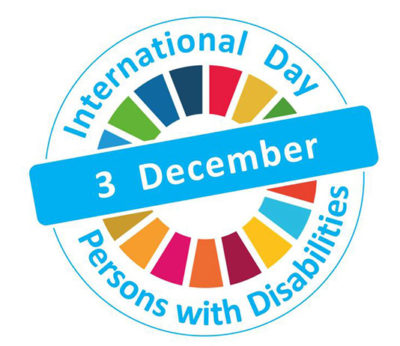
As the world observed International Day of People with Disabilities on Sunday, Dec. 3, it’s important to remember throughout the year that success begins with advocacy — people advocating for the disabled, as well as the disabled advocating for themselves, according to Martha H. von Mering, PhD, Stetson’s director of Accessibility Services.
“I think it’s critical that the students are able to advocate for themselves, which is a huge part of recognizing they do, in fact, have a disability,” von Mering says.
International Day of People with Disabilities (IDPD) promotes awareness of disabilities, apparent or otherwise, while helping to improve the lives of those affected and provide them equal opportunities. Each year, IDPD focuses on a specific theme to address different aspects of disability rights and inclusion. The theme for 2023 is “United in action to rescue and achieve the [Sustainable Development Goals] for, with and by persons with disabilities.”
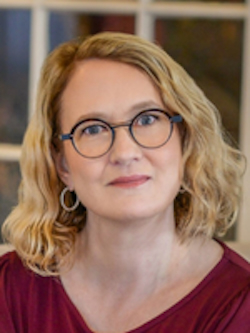
Stetson works year-round to provide all students a barrier-free environment in which everyone can thrive, von Mering points out. Accommodations are available for students of all sorts of disabilities, whether hidden — as with autism, learning disabilities, autoimmune diseases, hearing loss or mental illness — or unhidden, as with blindness or mobility challenges.
Students must apply each semester for new or renewed accommodations through the Accessibility Services home page. Accommodations include residential life, dietary needs, assistive technology and other classroom support.
To receive support, von Mering says, students must complete a “very simple three-step process.” She explains: ”They do a new student application, they upload documentation that confirms the presence of a disability, and then they meet with one of our accessibility services team members to register with accommodations.”
Self-advocacy represents a shift for college students, whose parents and K-12 educators previously advocated for them.
“It’s an ongoing requirement for these students to become very comfortable with advocating for themselves and understanding why that’s important,” von Mering says.
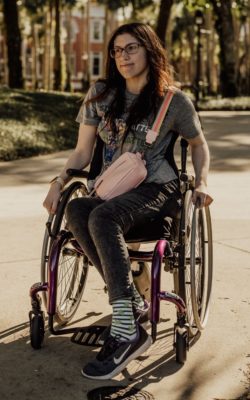
Second-year student Brooke O’Brien learned the importance of self-advocacy upon entering Stetson in fall 2022. Mostly wheelchair-bound, O’Brien admits “the first few weeks were nerve-wracking, and I’d never been on my own either.”
But she stepped up to the challenge. “I’m not a very assertive person, but sometimes you have to be. You have to change,” she adds.
O’Brien found an advocate in Joshua Rust, PhD. The Philosophy professor pushed for the repair of an elevator in Davis Hall and adjusted his classroom to accommodate her.
Friends also proved key to O’Brien’s successful transition. “Everyone’s very nice. Everyone’s always helpful,” O’Brien says.
In addition to Stetson’s accommodations, disabled students have access to various community resources that provide transportation, support, training, vocational rehabilitation, and medical and social services. The Accessibility Services website also provides answers to frequently asked questions.
Students with medical documentation shouldn’t hesitate to seek help, von Mering says, and Stetson is quick to provide it. Her words: “We just do it naturally across the board for all students coming into the university who have disabilities that rise the level of a handicap and conditions that require accommodations.”
Success stories like O’Brien’s have been echoed throughout Stetson’s disabled population, no matter their challenges. “All our students are success stories,” von Mering concludes.
-Cheri Henderson

